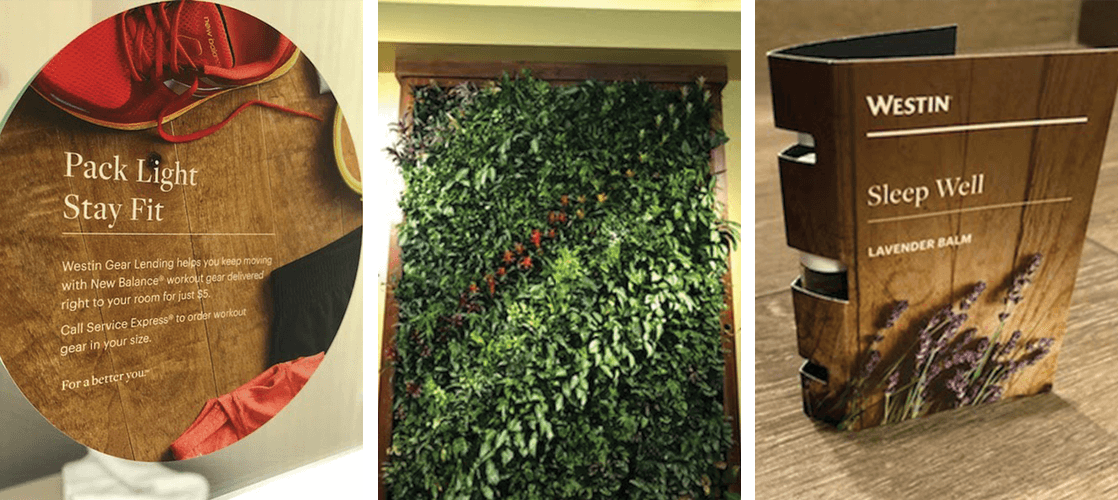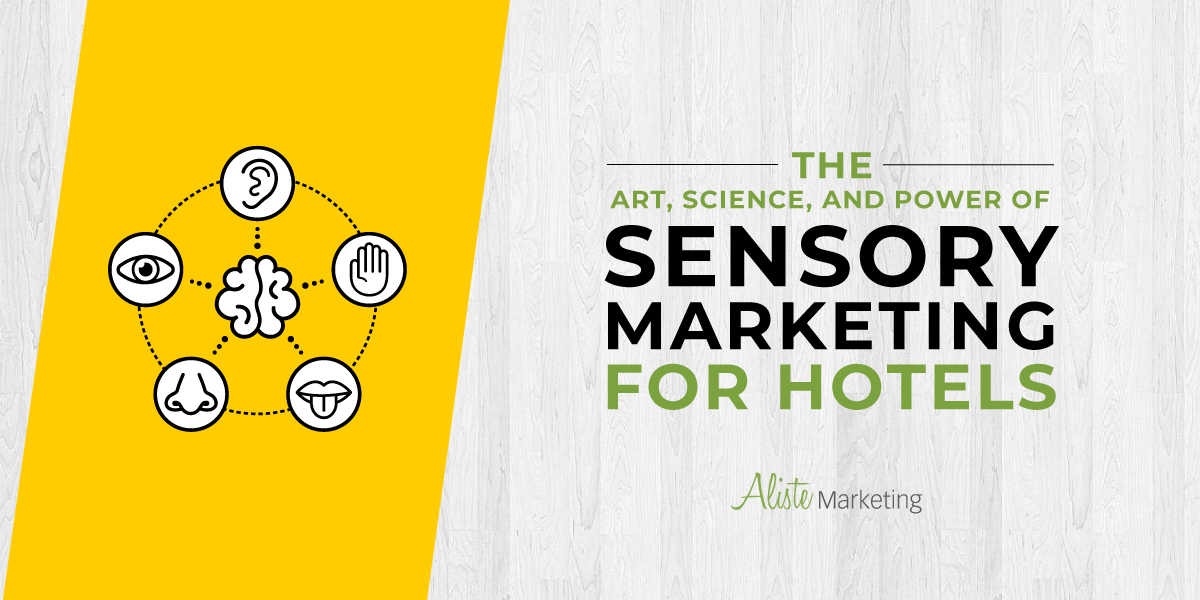The power of sensation is immense. The smell of cookies baking is so closely tied to comfort and nostalgia real estate agents put batches of chocolate chip treats in the oven before open houses to butter up potential homeowners.
Just seeing the color yellow can make people feel clearer, happier, and more optimistic. Listening to grunge rock was found to increase hostility and sadness while designer music helped increase positivity and decrease mental distractions.
Sensory marketing capitalizes on that connection between mind and body by helping consumers relive experiences and link those positive memories to a new product, service, or place.
The key is to appeal to at least one of the five senses:
- Sight
- Smell
- Taste
- Hearing
- Touch
Rather than building campaigns around typical, quantifiable features like product specs or pricing, sensory marketing overrides rational considerations and brings the considerable influence of consumer feelings to the forefront of the decision-making process.
Sensory Marketing for Hotels
The most effective marketing campaigns stretch across multiple channels. Your social feed complements your physical brochures. The tone of your blog and website are echoed in your app. You can take that one step further using sensory marketing.

- Sight: If your hotel is stylistically clean and modern, make your marketing materials just as sleek and sophisticated. If you’re a more rustic establishment, print flyers in earth tones and include pictures of the woods around your property in your collateral.
- Smell: Make aromatherapy a routine. Lavender is known for its ability to help relieve stress; offer guests a lavender-infused pillow or spritz some in the entrance to your spa. Floral scents feel homey, so scatter fresh arrangements throughout your hotel. Even the pleasant aroma of freshly laundered linens can suggest cleanliness and renewal.
- Taste: Most people love to eat and drink. That (plus value) is one reason continental breakfasts are so popular with hotel guests. Upgrade that idea with free wine in the lobby around dinner time and a weekly chef’s menu highlighted on social media. A great taste-based sensory experience is about the hospitality too; get wait staff involved so that even midnight room service feels special.
- Hearing: In some cases, the rights sounds can complete an experience. Other times, it’s the lack of sound that matters. Hotel guests don’t want to hear their neighbors talking or listen to rattling plumbing. Write a blog about the iPhone ports you installed in each room and remind guests their walls are soundproof just in case.
- Touch: Scratchy sheets are memorable for all the wrong reasons but a velvety soft loveseat or a cool room in the midst of a soaring heat wave are the right kind of touch marketing. Talk up the fact you have individually controlled thermostats in each suite and describe your bedding with words like “luxurious”, “high thread count”, and “silky soft” to paint an almost tactile picture.
Some sensory marketing efforts can have a direct effect; treating guests to a gardenia-scented diffuser in their bathroom may encourage them to buy from your range of similarly scented toiletries. Other times the effect is more subtle.
Somewhere out there, a past guest is chomping into pumpkin bisque and thinking of your fall foodie fest while someone else is lighting a candle that smells like your signature soap.
Marketing is all about telling a story, and there are few better ways to do that than by harnessing the power of the human senses.
Eager to help guests sniff, pet, listen, look, and sip their way to increased loyalty? Consult with our team and get your next marketing campaign in gear.




